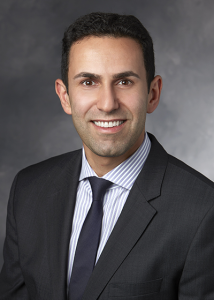29 Nov Surgical Treatment An Option For Patients With Recalcitrant Sleep Apnea

Dr. Soroush Zaghi
MedicalResearch.com Interview with:
Soroush Zaghi, MD
Department of Head and Neck Surgery
David Geffen School of Medicine at UCLA
University of California, Los Angeles
MedicalResearch: What is the central message for clinicians and surgeons from your results?
Dr. Zaghi: Multiple studies from different practitioners and institutions agree that Maxillomandibular Advancement (MMA) is a highly effective surgical option for patients with obstructive sleep apnea who cannot tolerate positive pressure therapy and have not found success with other surgical procedures.
MedicalResearch: Does this mean the benefits outweigh the risks for MMA, or is there still substantial leeway in deciding who to treat with this surgery?
Dr. Zaghi: The risks of surgery are different for each patient. Generally, younger patients (under age 65) with good bone health are better candidates. The type of dental occlusion, size of the mouth and tongue, and position of the lower jaw also weigh in determining which patients would be the best candidates. A recent study by my colleague Dr. Stanley Liu at Stanford has shown that drug-induced sleep endoscopy can also be very helpful for identifying patients who would have the best chance for improvement after surgery. Even so, the study we performed here shows that MMA is an excellent option for patients with moderate to severe obstructive sleep apnea who have been unable to find a working solution and would otherwise continue to be at high risk for life-threatening medical problems (heart attack, high blood pressure, irregular heart beat, diabetes, stroke) if not treated effectively.
MedicalResearch: What kind of research is needed now on this topic?
Dr. Zaghi: The most troublesome complication of surgery is problems with dental occlusion, cosmetics, and chin numbness after surgery. I am currently working on a project under the leadership of Dr. Stanley Liu along with Dr. Audrey Yoon, Dr. Joanna Lee, and Dr. Robert Riley to utilize computerized 3D surgical modeling and multidisciplinary collaboration with specialized orthodontists to optimize these outcomes.
MedicalResearch: Anything you’d like to say that I haven’t asked about?
Dr. Zaghi: It is very rewarding and exciting to be part of a group of surgeons dedicated to the treatment of complex sleep apnea. I would refer interested patients or practitioners to explore the international sleep surgery society website (http://surgicalsleep.org) to find a recognized specialist in their local area.
Citation:
Dr. Soroush Zaghi, MD (2015). Surgical Treatment An Option For Patients With Recalitrant Sleep Apnea
Last Updated on November 30, 2015 by Marie Benz MD FAAD
